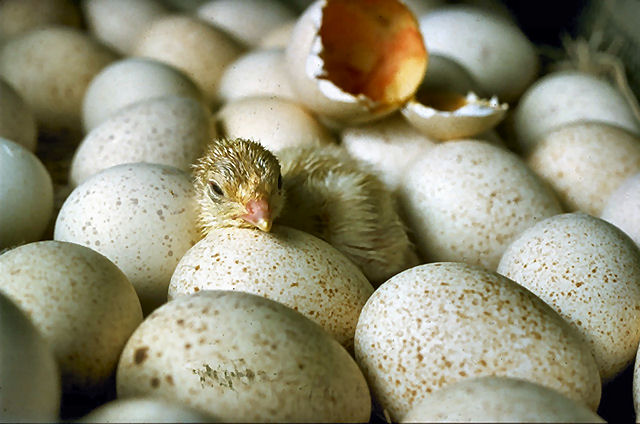 It isn't often that a discussion about a featured picture candidate carries much significance beyond technical and encyclopedic merits. Systemic bias gets mentioned sometimes, but usually as a passing concern. Today was different. I won't show the image itself but I'll link to the discussion. The candidacy is called Moment of Birth and there's an ongoing discussion about whether it constitutes gender bias, privacy invasion, or a human rights violation.
It isn't often that a discussion about a featured picture candidate carries much significance beyond technical and encyclopedic merits. Systemic bias gets mentioned sometimes, but usually as a passing concern. Today was different. I won't show the image itself but I'll link to the discussion. The candidacy is called Moment of Birth and there's an ongoing discussion about whether it constitutes gender bias, privacy invasion, or a human rights violation. It's a photograph of a caesarian delivery from a hospital in London without documented permission from the subject.
It's a photograph of a caesarian delivery from a hospital in London without documented permission from the subject.From a certain distance, heated Wikipedia debates can look hilarious. Immediately after I posted my second comment to the thread I actually messaged two people to ask whether it went too far.
Let's call this a matter of perspective. I am a woman. If anyone ever shows up in a delivery room where I am giving birth and attempts to use "she's lying down" as a pretext to take photographs without my permission, I will leap from the gurney, tackle the SOB, and eat the camera.
-small.jpg) Two conversations later I haven't altered that post. Some women welcome photography in the delivery room; some even allow such images to be used in television and other mass media. That is a very generous choice from the people who make it. When I choose to do something generous in a medical setting I give blood. I've given a lot of blood. Nobody makes the mistake of supposing my decision to give blood gives them a right to stick a needle in your elbow and take your blood. You'd get angry if they tried that without your consent, wouldn't you?
Two conversations later I haven't altered that post. Some women welcome photography in the delivery room; some even allow such images to be used in television and other mass media. That is a very generous choice from the people who make it. When I choose to do something generous in a medical setting I give blood. I've given a lot of blood. Nobody makes the mistake of supposing my decision to give blood gives them a right to stick a needle in your elbow and take your blood. You'd get angry if they tried that without your consent, wouldn't you? So the image is under consideration for featured picture status, which means it would spend a day on Wikipedia's main page. To give a sense of what could result, so far this month Wikipedia's main page daily traffic had a low of 12.7 million page views on June 7 and a high of 20.1 million page views on June 23. That's a lot of eyes. We don't know whether she ever consented to have the picture taken, or uploaded to Wikipedia, and she almost certainly doesn't know that it's a candidate for featured picture: the editor who uploaded the image has been inactive since February.
So the image is under consideration for featured picture status, which means it would spend a day on Wikipedia's main page. To give a sense of what could result, so far this month Wikipedia's main page daily traffic had a low of 12.7 million page views on June 7 and a high of 20.1 million page views on June 23. That's a lot of eyes. We don't know whether she ever consented to have the picture taken, or uploaded to Wikipedia, and she almost certainly doesn't know that it's a candidate for featured picture: the editor who uploaded the image has been inactive since February.  Babies are cute; most people want to show them and see them. And childbirth itself is fascinating and encyclopedic. But wait--it's also a medical procedure--and one of the most personal moments in the world. A good number of people would no sooner show the world a photograph of their own child being born than a photograph of their own child being conceived.
Babies are cute; most people want to show them and see them. And childbirth itself is fascinating and encyclopedic. But wait--it's also a medical procedure--and one of the most personal moments in the world. A good number of people would no sooner show the world a photograph of their own child being born than a photograph of their own child being conceived.Until I raised the consent issue nobody even mentioned it; I appear to be the only woman in the discussion. Fortunately once I voiced this concern some other editors joined the opinion. It's not unanimous though. The ongoing debate covers subject identifiability, latent gender bias, and the European Convention on Human Rights.
----
Image credits:
http://upload.wikimedia.org/wikipedia/commons/d/d2/Lion_sex.jpg
http://upload.wikimedia.org/wikipedia/commons/f/f0/Chicks_hatching_USDA95c1973.jpg
http://upload.wikimedia.org/wikipedia/commons/f/f2/Birth_of_black_bee_(Apis_mellifera_mellifera)-small.jpg
http://upload.wikimedia.org/wikipedia/commons/d/d2/Eucharius_R%C3%B6%C3%9Flin_Rosgarten_Childbirth.jpg
http://upload.wikimedia.org/wikipedia/commons/e/e6/Expirimental.jpg




1 comment:
Durova, this is indeed an interesting point and something worthy of exploration. I wonder, though, whether "Featured image" status is really the issue at hand.
I don't think the Wikipedia is well-equipped to make such fine distinctions, or that it's appropriate to expect that. The level of concern you show seems to me more appropriate to whether or not the image is included in the project at all, rather than whether or not it's featured.
So I'd say you've made the beginnings of a good argument for IfD; I think it's fine that the argument arose out of a Featured Image discussion, but ultimately I'd say that if an image is allowed on Wikipedia or Wikimedia Commons -- IF being the operative word -- that these sort of concerns should not prevent it from being Featured.
After all, anyone can pubish a freely licensed image anywhere they want...Wikipedia is not the only site that gets 20 million page views.
Post a Comment